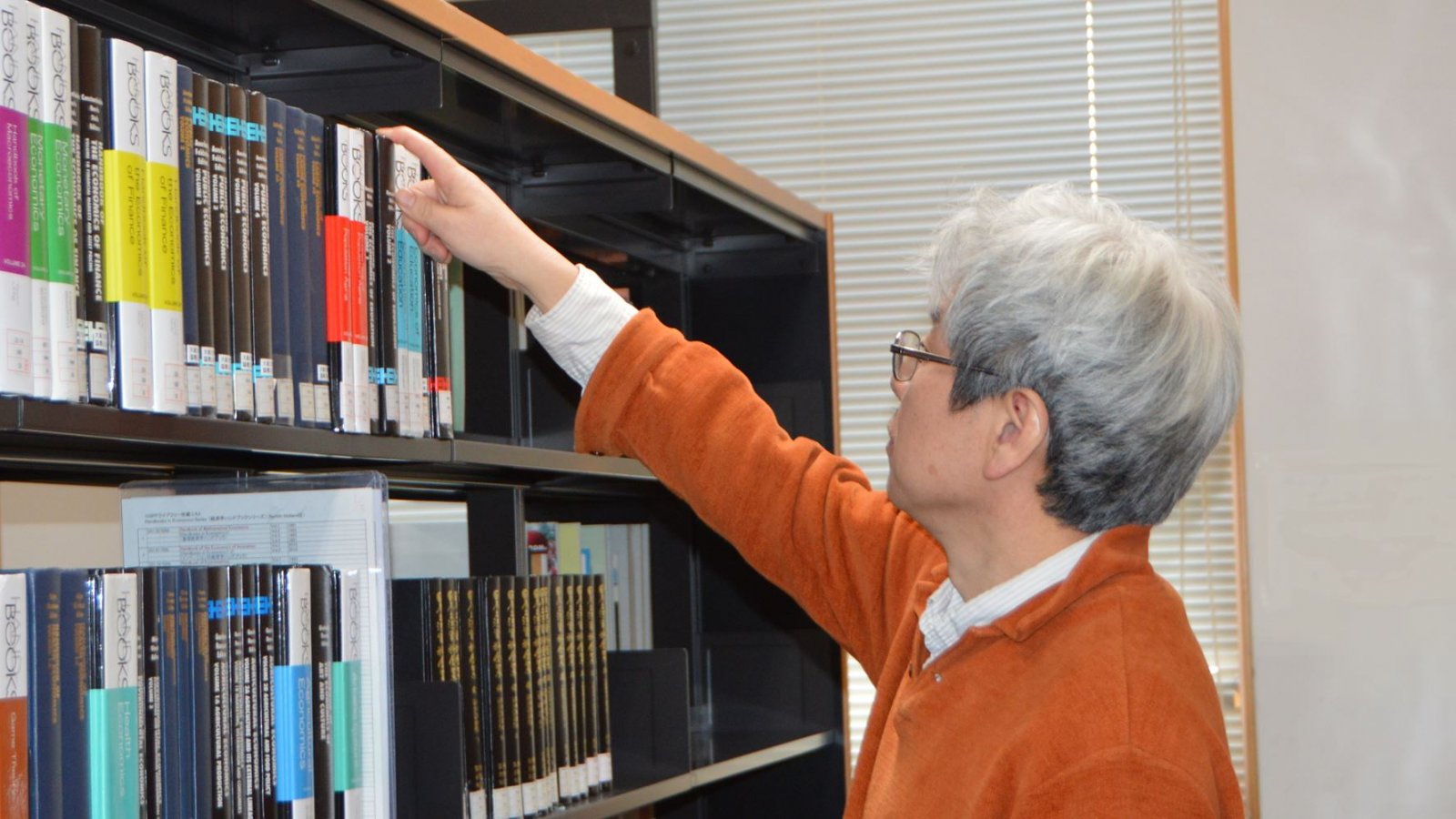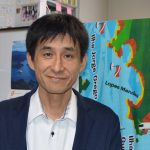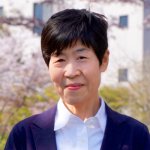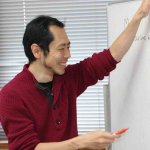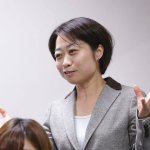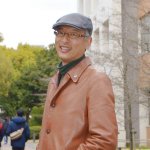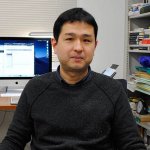Field of Research
Economics of Human Resource Allocation, Economics of Human Capital and Organization, Search and Matching Theory
Research Topics
People, Organizations, and Macroeconomics
Overview of Research
People experience encounters with, and separations from, various individuals and organizations throughout their lives. In particular, employment, retirement, marriage, and divorce are important turning points in life as they involve changes in long-term relationships. Through various encounters and separations such as these, we lead our lives by engaging in a variety of co-creative activities with our colleagues, spouse, teachers, students, and friends with whom we come to share our lives under unpredictable circumstances.
What is the mechanism behind such unpredictable circumstances that are actualized through encounters and separations? What kind of human resource allocation has been achieved in society through this process? What impact does human resource allocation that has been achieved in this manner have on social development and disparities? Finally, how should we live our lives under the existing human resource allocation system in society to achieve happiness? I pursue my studies with such questions in mind, calling my endeavor the “economics of human resource allocation.”
I am currently conducting an analysis regarding the possible impact of the Japanese university entrance examination system on the nation’s human resource allocation mechanism, both from theoretical and empirical standpoints. I have obtained a scientific research grant for the topic “The Role and the Problems of the Japanese University Entrance Examination System: From the Perspective of Human Resource Development and Selection.” The university entrance examination system in Japan has the following characteristics.
(1) Written exams have an extremely important weightage.
(2) Many leaders in society (corporate executives, bureaucrats, politicians, etc.) are graduates of universities that require high standard-deviation exam scores.
(3) High school students must choose their majors before they fully understand what it is that they will study in university.
(4) Publicly funded universities that tend to be less flexible in responding to changes in society occupy preeminent positions in society as institutions that require high standard-deviation exam scores.
(5) Public universities do not usually allow multiple entrance exams within a given year. Since students have only one shot (one exam) per year, many of them end up becoming ronin (students who have failed their entrance exams and have decided to keep studying, hoping to pass in the following year).
How do these characteristics of the university entrance examination system in Japan affect the nation’s human resource allocation mechanism? This is the topic that I am currently pursuing. If the above discussions have raised your curiosity regarding the details of this research project, please visit the following website:
http://www2.osipp.osaka-u.ac.jp/%7Etakii/Leaders2.html
Keeping the above issues in mind, we hold monthly study sessions on the economics of human resource allocation, in which participants with scientific research grant projects release their latest articles; broader research results on human resource allocation and related subjects are also reported. If you are interested in the articles that are being discussed during these sessions, please see the website below: https://sites.google.com/site/jinzaihaichinokeizaigaku/
Finally, if you are interested in the research that I have previously conducted, please see the following website:
http://www2.osipp.osaka-u.ac.jp/%7Etakii/research.html
Analytical perspective and methodology: Next, let me discuss the perspective and the methodology that should be considered while analyzing issues related to human resource allocation. First, in order to understand the existing human resource allocation mechanism, I believe that it is important to pay attention to the following two perspectives in a well-balanced manner.
1) People have diverse abilities and preferences that influence their choice of occupation and life partner (such as spouse).
2) Human resource allocation cannot be determined solely by the decisions of the individuals involved. It is determined through an invisible social network of many people in a cooperative and competitive relationship.
In other words, various human beings engage in social production, being connected through rules that are based on social customs and institutions. This seemingly simple yet complex phenomenon may be important in understanding how human resources are allocated in reality. If we emphasize only the diversity of individuals, our perspective becomes so narrow that it may be difficult to grasp the social mechanism that lies behind the existence of a certain human resource allocation pattern. On the other hand, if we only look at aggregate data trends hoping to have a bird’s-eye view of social connections, we may overlook the activities of diverse individuals behind these aggregate data and miss the peculiar circumstances in which two different individuals come together to form a pair. Thus, striking a good balance between these two conflicting demands is one of the most difficult challenges of this research.
Second, people’s efforts in forming and maintaining a desirable relationship should not be ignored. Their diverse abilities and preferences have been strongly influenced by their various past efforts. In addition, the act of finding a suitable partner (job, spouse, etc.) requires a certain amount of effort. Mutual efforts are also indispensable in maintaining a long-term relationship. When such efforts on the part of individuals are taken into consideration, we encounter yet another unavoidable problem: the institutional framework that affects people’s willingness or unwillingness to make an effort. In particular, it is important to keep in mind that the act of making an effort, if not clearly spelled out in a contract, may not be enforceable (as only the parties to the agreement would know the existence of such an unwritten rule). In such a situation, there may be cases in which one would not be able to ask their partner to shoulder the costs of such efforts, despite the fact that the partner is a beneficiary of those efforts. This could lead to a decline in the number of people willing to make an effort.
As seen above, the issue of human resource allocation includes multifaceted and complex problems. Understanding the issue in its entirety would require diverse theories, such as assignment theory, search theory, human capital theory, and contract theory. Moreover, the issue of human resource allocation deals with interactions among various individuals. For this reason, various types of quantitative analyses must be employed based on the research purposes. For example, when analyzing the diversity of individuals as the primary research subject, a statistical-causal-reference method focusing on diversity-based selection or a generalized Roy model would be required. When analyzing interactions between individuals, methods that allow for quantitative analyses of equilibrium models, such as structural estimation and calibration, must be used in a well-balanced manner. If you would like to learn about the lecture content of the economics of human resource allocation, please visit this website:
http://www2.osipp.osaka-u.ac.jp/%7Etakii/EHRA.htm
To acquire extensive knowledge of the above discussion, minimum levels of mathematics and statistics are required. If you would like to receive my graduate-level thesis/dissertation instructions in light the above considerations, please take a look at the following website:
http://www2.osipp.osaka-u.ac.jp/%7Etakii/Students.pdf
TAKII, Katsuya
Professor
Degree: Ph.D. in Economics (University of Pennsylvania)
takii@osipp.osaka-u.ac.jp


